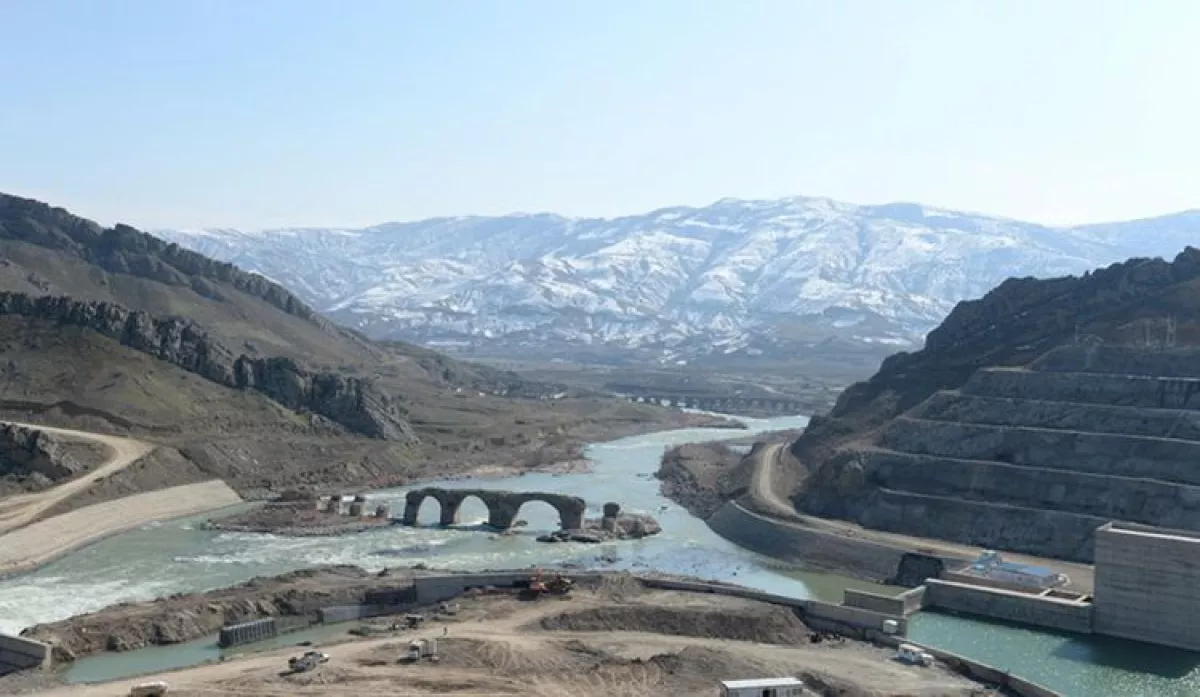Azerbaijan’s counterclaim puts occupation’s cost in focus Armenia’s Karabakh nightmare
As reported by Caliber.Az, on November 19, the government of Azerbaijan submitted the main claim document to the Permanent Court of Arbitration in The Hague under the Energy Charter Treaty and under international law principles. The document highlights numerous violations by Armenia of Azerbaijan's sovereign rights over its energy resources. In simpler terms, Armenia has been sued for the illegal use of Azerbaijani electricity throughout the years of the occupation of Karabakh. Now, it may be worth going into more detail.
For nearly 30 years of illegal occupation of internationally recognized Azerbaijani territories, Armenia obstructed Azerbaijan's access to or development of its energy resources in these areas. On the contrary, Armenia exploited these resources for its own benefit. Among the violations of international law by Armenia, one can notably highlight its refusal for decades to grant Azerbaijan access to significant renewable energy projects or to allow Azerbaijan to benefit from them. These include the Tartar Hydroelectric Power Plant (HPP), located on the Sarsang Reservoir in the previously occupied Aghdara district, as well as the HPPs "Khudaferin" and "Giz Galasi," located on the border with Iran in the formerly occupied Jabrayil district, as well as previously untapped energy potential, renewable energy sources including hydroelectric power, and other resources.
During the illegal occupation, Armenia licensed and regulated the entities operating the Tartar HPP, illegally connected this power source to its own internal electricity grid, and redirected additional energy to Armenia for domestic consumption. Moreover, by blocking Azerbaijan’s access to the project areas of "Khudaferin" and "Giz Galasi," Armenia delayed the completion of these crucial hydropower projects by 30 years and hindered the development of Azerbaijan's renewable energy sector.

An intriguing situation is unfolding. The occupation of Karabakh is backfiring on Armenia. In Yerevan, there was a belief that the longer the de facto separation of Karabakh from Azerbaijan persisted, the more likely the international community would eventually accept the occupation. According to the "fait accompli" principle—where a prolonged status quo related to the occupation might eventually be seen as legitimate—they hoped that “Nagorno-Karabakh” would either be recognized as an independent state or as part of Armenia.
However, the international community was in no rush to recognize the separatist entity. First, it violated international law, and second, Azerbaijan was too strategically important for global powers to simply disregard. It’s also important to note that Armenia itself never recognized the NKR. It was like a rodent that took a large chunk of cheese but couldn’t chew it, swallow it, or spit it out. Armenia was left waiting for the rightful owner of the cheese to come along and pull the thief by the tail.
Thus, Karabakh became a kind of nightmare for Armenians. Somewhere deep in their minds, they suspected that they would eventually have to pay for this, but they couldn’t find the strength to put an end to it. Armenian ego became the engine driving Azerbaijan’s counterclaim. And since that ego is vast and boundless, the counter kept running smoothly. After 28 years of occupation, Azerbaijan gathered its strength, reclaimed its lands, and now presents Armenia with the bill for these three decades.

In fact, it often seems that Armenia clings to the "Karabakh case," resisting the dissolution of the Minsk Group, changing its constitution, and so on, precisely because it fears having to pay compensation. Yet, this is something it will inevitably have to do, no matter how much the international community may want to protect Armenia’s position. We would advise Armenians to agree to compensate quickly, without resorting to lengthy litigation.
After all, Armenia is currently earning significant sums through circumventing anti-Russian sanctions, and it would be more beneficial for them to pay the price for the stolen resources now, while funds are available. If Yerevan chooses the path of prolonged legal battles, appeals, and so on, the court's decision might come at a time when the taps are turned off, and “the game is over.” In such a case, the compensation would become a heavy burden on the shoulders of the average Armenian citizen.








